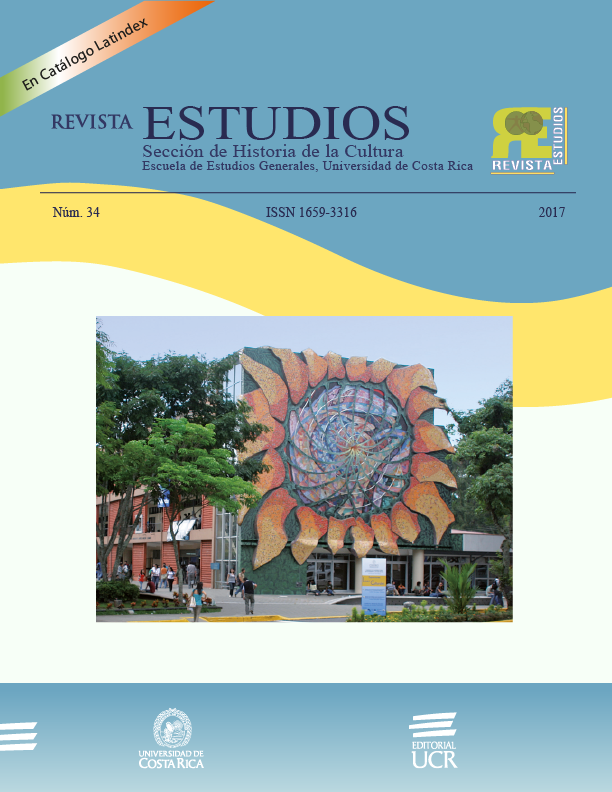Abstract
The article proposes some notes on the notion of passivity developed in the maturity writings of the Jewish philosopher Emmanuel Levinas, considered one of the fundamental pillars on which his complex discourse on ethical subjectivity and responsibility to substitution is based. Achieved thanks to what the author himself calls the method of emphasis, the levinasian proposal on this notion is condensed in the iterative construction: "passivity more passive than all passivity." With this figure, the philosopher seeks, on the one hand, to take the notion beyond the uses that made the philosophical tradition and, on the other hand, to reach the final phenomenological foundation of his conception of ethical subjectivity that, breaking with his ontological enclave, is conceived as being otherwiseReferences
Casper, B (2008). Pensar de cara a otro. Elementos del pensamiento de Emmanuel Levinas, Córdoba: EDUCC.
Derrida, Jaques (1997). ¿Cómo no hablar? y otros textos, Madrid:
Anthropos Editorial.
Garrido-Maturano, Ángel (1995). "Pasividad y corporalidad como exposición y decir en el pensamiento de E. Levinas" en Ágora. Papeles de Filosofía, Vol. 14, N°1, pp. 5-18.
Husserl, Edmund (2009). Meditaciones cartesianas, Madrid: Tecnos.
Levinas, Emmanuel (1987). De otro modo que ser o más allá de la esencia, Salamanca: Sígueme.
Levinas, Emmanuel (1993). Entre nosotros. Ensayos para pensar en otro, Valencia: Pre-textos.
Levinas, Emmanuel (1998). Dios, la muerte y el tiempo, Madrid: Cátedra.
Levinas, Emmanuel (2001). De Dios que viene a la idea, Madrid: Caparrós
Editores.
Levinas, Emmanuel (2004). La teoría fenomenológica de la intuición, Salamanca: Sígueme.
Levinas, Emmanuel (2005). Descubriendo la existencia con Husserl y Heidegger, Madrid: Síntesis.
Levinas, Emmanuel (2006). Totalidad e Infinito. Ensayo sobre la exterioridad, Salamanca: Sígueme.
Levinas, Emmanuel (2006b). Trascendencia e inteligibilidad, Madrid: Encuentro.
Levinas, Emmanuel (2008). Difícil Libertad. Y otros ensayos sobre judaísmo, Buenos Aires: Lilmod.
Levinas, Emmanuel (2011). Humanismo del otro hombre, México: Siglo XXI.
Levinas, Emmanuel (2015). Inéditos II. Palabra y Silencio y otros escritos, Madrid: Editorial Trotta.
Paris, Alessandro, (2012). Trauma e sostituzione. Emmanuel Levinas tra
esperienza ed etica, Roma: Aracne.
Peñalver, Patricio (2001). Argumento de alteridad. La hipérbole metafísica de Emmanuel Levinas, Madrid: Caparrós Editores.
Ricoeur, Paul (1996). Sí mismo como otro, Madrid: Siglo XXI.
Ricoeur, Paul (2011). De otro modo. Lectura de De otro modo que ser o más allá de la esencia de Emmanuel Levinas, Barcelona: Anthropos.
Rolland, Jacques (1998). "Epílogo" en E. Levinas, Dios, la muerte y el tiempo, Madrid: Cátedra.
Rolland, Jacques (2015). “Preface” en Levinas, Emmanuel Étique comme
philosophie première, Paris: Payot & Rivages.
Rovatti, Pier Aldo (1990). Como la luz tenue. Metáfora y saber, Barcelona: Gedisa.
Sebbah, François-David y Calin, Rodolphe (2002). Le vocabulaire de Levinas, París: Ellipses.
Sucasas, Alberto (2006). Levinas: lectura de un palimpsesto, Buenos Aires: Lilmod.
Strasser, Stephan, (1977) "Antiphénoménologie et phénoménologie dans la philosophie d'Emmanuel Levinas" en Revue Philosophique de Louvain, N° 75, pp. 101-125.

